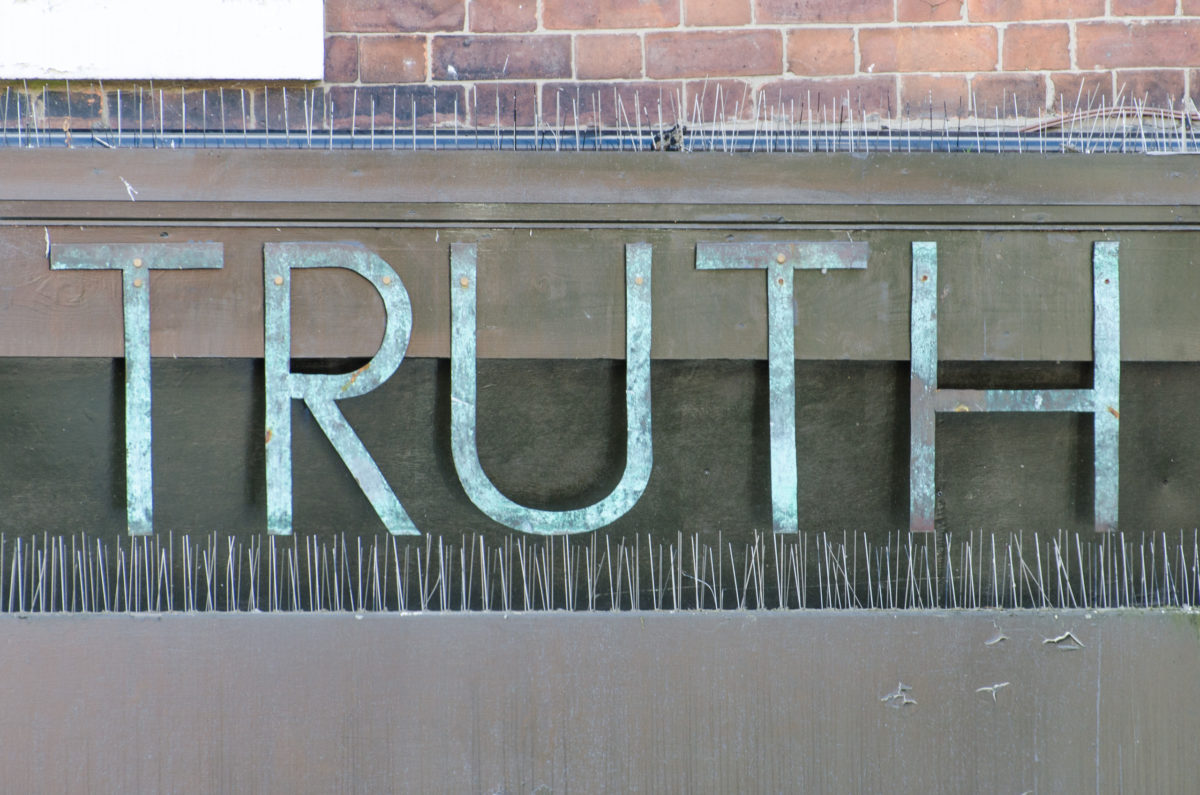The false alternative between achieving academic goals and having fun
Each September, students arrive on college campuses and prepare for the academic challenges ahead. They arm themselves with lists, schedules, and planners as they seek out classes, bookstores, and financial aid offices. The air seems alive with a sense of energy as students begin the pursuit of their chosen goal: to attain a higher education.
September is a fresh start, a chance to plan, prepare, and follow through on that goal. But it is also a time of excitement, when students feel alive and happy, and are eager to celebrate that feeling. The semester’s beginning promises new friendships and new experiences.
Before long, however, the fun can seem to come into conflict with academic pursuits. Our focus at the beginning of the year can be quickly diminished by a series of invitations and impulses: Do I go to see a movie, or study for Friday’s test? Have dinner with friends, or eat in and complete the essay due tomorrow? The will to study, so strong initially, seems to get sapped by the lure of television, parties, and text messages.

So it can seem that the only way to achieve the longer- term goals of good grades and graduation is to resist and forgo any pleasure and lock oneself in the library all weekend. This means constantly resisting the temptation to act impulsively, to slam the books shut and go downtown in defiance of looming deadlines. An internal conflict arises: distant future success through current suffering, or current pleasure at the expense of a bright future.
Does it have to be that way? We see from many counter- examples that it does not. College campuses are full of students that seem to have the knack to strike a balance— students that don’t seem constantly to be undermining their future for the lures of the moment, and yet who also seem to enjoy plenty of moments while pursuing that future. What is it that these students have, but many others lack?
They have a different underlying attitude toward the relationship between short- and long-term values. The underlying attitude of the student who experiences a need to act impulsively is that the purpose of forethought is to make sure you “do your duty”. The underlying attitude of the student who achieves harmony between the short and long term is that the purpose of forethought is to make sure you achieve your happiness.
Any conflict between impulsiveness and duty is a false alternative. Such conflicts assume that if you pause to think about it, you’ll always decide that it’s a mistake to have fun instead of studying, because your duty is to study. Impulsive action therefore seems the only means of really enjoying the present. When studying becomes associated with drudging duty in this way, its apparent opposite, hedonism—thoughtless impulsiveness—seems to be the only way to enjoy life.
Pursuing hedonistic pleasure means reacting to whatever impulse you feel without considering future consequences. In contrast, students who seem to be striking a balance are pursuing genuine happiness. They are trying to live a life of pleasure, which means enjoying the present while remaining aware of long-term considerations and making thoughtful choices on that basis. Any human value— whether a Friday night movie, a college degree, a successful career, a fulfilling romance, or good health—presupposes thought-directed action. A person who characteristically fails to act thoughtfully will not even be able to stay on top of simple things like paying bills, buying groceries, remembering birthdays, and saving up to go to the movies, let alone be able to achieve profoundly rewarding goals like an enduring romance or a Ph.D.
Impulsiveness: The Pleasure Killer
The main reason not to pursue fun impulsively is that it leads to less overall enjoyment. When a freshman impulsively abandons his plan to prepare for tomorrow’s test by accompanying his roommate to a movie, it is easy to sympathize with him—he wants to enjoy his youth and his life. But in ignoring the future implications of his present action, he is stealing later enjoyment from himself (the enjoyment, for instance, of doing well on the exam, and later reaping the rewards of his high performance). This is not because he has consciously decided that seeing the movie is more important to him than passing the exam, but because he has failed to think through the relative importance of either alternative. By acting on impulse instead of reasoned thought, he has robbed himself of the opportunity to judge what course of action will bring him the greatest present and future enjoyment—thereby leaving it in the hands of dumb luck.
But there’s a deeper reason that impulsive action is a bad idea: it undercuts the very fun being pursued. Think of the freshman going to the movie. While getting ready, he has to ignore the nagging feeling that he shouldn’t be doing this. While walking to the theater, he has to suppress the worry that something bad is looming, that he may fail a test he could have otherwise passed. When he learns that another friend decided to stay and study, he has to push away the sinking feeling that he should really be doing the same thing. For him, the pleasure comes to be experienced as something temporary and stolen—lasting only as long as he’s able to ignore the unreasonably high price that he risks paying. Such pleasure is always accompanied by guilt that he must continually evade.
The student who acts on impulse sets himself up for a conflict between the short and the long term. He will feel like tomorrow’s test is what is keeping him from that party he wants to attend. He will then either deprive himself, forcing himself to study, or more likely, he’ll see that conviction vanish in the teeth of a tempting phone ring or IM pop-up, giving in to the temptation. And the more he gives in, the more likely he’ll be to give in next time. The very experience of fun then becomes a source of guilt.
Underneath it all, he probably feels that his mistake is a lack of discipline—if I just had willpower, he thinks, I wouldn’t do this. In this way, he’s a hedonist because he thinks self-denial is the only alternative. But the problem is not really a question of willpower. Mere discipline is not really the source of the motivation to study. The proper (and far more motivating) source is the commitment to enjoying life—the same motivation that leads someone to go to the movies. Discipline is indeed required—but it’s the discipline necessary to pursue pleasure selfishly over the long term, not the discipline to deny pleasure.
If you’ve ever found that your long-term goals feel like unpleasant obligations, it’s worth reflecting on the deeper reason why we take present action to prepare for the future: in order to enjoy life. For an animal, rewards automatically motivate and directly follow from successful effort—a wolf hunts, then it eats. For a human being, whose goals are long-range, rewards don’t usually follow so immediately. The effort we exercise in planning and studying for a calculus test is rewarded, but that reward isn’t immediately tangible (it might only come about as a better job years later). We, unlike other animals, can lose sight of the justification for putting forth the effort—we can forget that our fundamental reason for studying is our desire to achieve a more enjoyable life. This is why student counselors advise us to put aside plenty of time and money for leisure and entertainment; such relaxation helps us remember that we’re working, not out of duty or obligation, but for the sake of pleasure. Rewarding ourselves for hard work, such as by treating ourselves to a good movie after acing a difficult exam, gives the purpose of our efforts an immediate emotional reality. It reminds us that happiness is the end of our efforts.
(And there is, of course, the joy of the doing itself. Just as the wolf enjoys the meal and the hunt, so you can enjoy the effort of studying. Work is effort, but it can be satisfying effort. If you seek out work that you love, the process of earning pleasure itself becomes a pleasure.)
If we accept the idea that our purpose in college is to earn a life of enjoyment, it’s possible to erase the perceived conflict between working hard and having fun. This involves a conscious commitment to enjoy life today while also preparing to enjoy the future, and to use this commitment truly to guide our choices. When unexpected opportunities arise, for example—we win free tickets to a concert, say—we should neither cling militantly to our work plan nor abandon it, but instead try to revise our schedule to fit it in. This is the approach of the many students who live it up on the weekends while keeping up with jobs and coursework. The rewards they pursue—food, games, novels, movies, parties, road trips, sex—are healthy and desirable values because they are pursued thoughtfully. It’s only the false alternative between hedonism and duty that produces the frustrating conclusion that enjoying student life precludes being a good student.
Acting thoughtfully and planning long-range does not mean long years of misery while we wait for eventual pleasurable rewards. To the contrary, only the student who acts in accordance with a plan is truly capable of appreciating the pleasures big and small, future and present, that life has to offer. Such a student fills his long-term plan with short- term pleasure, and then he enjoys today, knowing that he has not forgotten that tomorrow really will come.
Thought and planning allow us both to earn good grades in service of our future enjoyment and to enjoy our life in the present. If we can create in ourselves the discipline to study tonight and go out tomorrow to celebrate (or if we thoughtfully decide that it actually makes more sense to go out tonight and study tomorrow, and then we follow through on studying tomorrow), the rewards of this policy are both happiness and success. We should recognize that recreation is very often the right choice and see that going straight from one academic effort to the next, without any enjoyment in the doing and without any pause for fun and celebration, will result in as much misery as simply acting on one’s impulses. As a result, there is no clash and no guilt in the pleasure—only the clean feeling of a unity of achievement and enjoyment.
Pleasure is the result of action—and action, for a human being, properly means thought-guided action. To the extent that we fail to grasp the importance of long-range planning as a means to enjoying life in the short term, our approach will be not action but reaction. We will constantly react to things that seem worth having or doing now, without due consideration of what is actually good for our life and happiness in light of both our short- and long-range needs. If we find ourselves tempted to abandon thoughtful planning for the sake of momentary pleasure, we should remind ourselves that it is pleasure that we’re actually abandoning. We should work to view indulging in transient impulses not as throwing off an unchosen duty, but rather as giving up, to some degree, on our pursuit of happiness. Instead, we have a powerful alternative: consciously to assess all the relevant factors and thoughtfully choose, in every instance, the course of action that we know is best for us, applying our minds to the task of squeezing every ounce of pleasure we can into life—today, tomorrow, and into the future.




